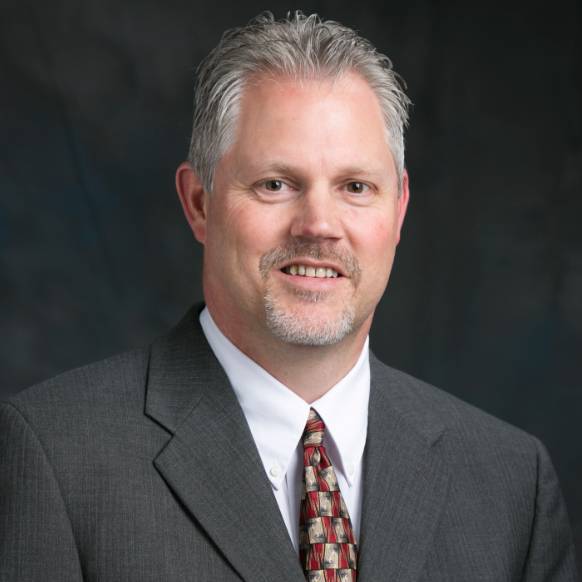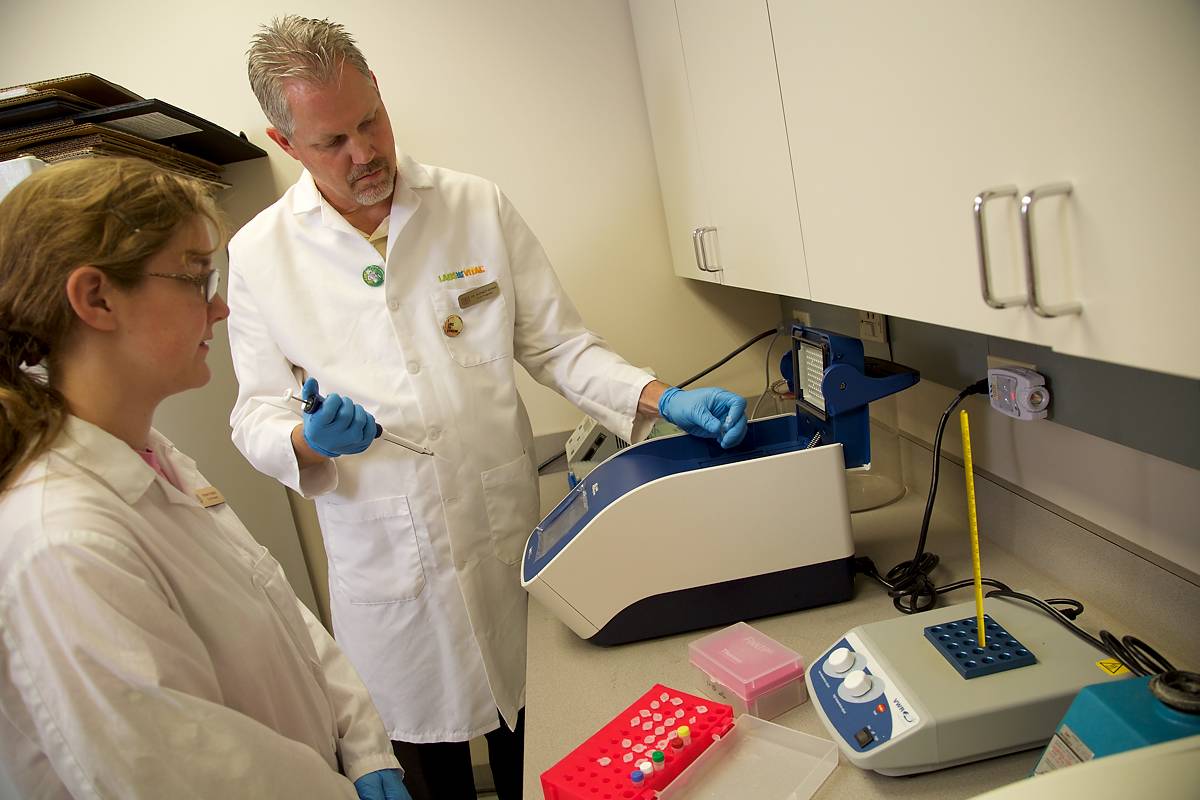Julie Cooper | March 2, 2021
Dr. Rodney E. Rohde is the program chair for the Clinical Laboratory Science Program (CLS) and holds the rank of professor in the College of Health Professions. He served as Associate Dean for Research (ADR) for the College of Health Professions as the longest tenured ADR at Texas State from 2011-2020 and was recently appointed associate director for the Translational Health Research Center, one of the Texas State Big Ideas.
Additionally, Rohde continues his work as an adjunct associate professor of biology in the Biology Department for Austin Community College (25 years) where he teaches biology and microbiology for nursing and other health profession students. He holds certifications as a specialist in virology, specialist in microbiology, and molecular biologist from the American Society for Clinical Pathology.
Rohde spent a decade as a public health microbiologist with the Texas Department of State Health Service Bureau and Zoonosis Control Division with two stints as a CDC Visiting Scientist.

Q: How did you become interested in Clinical Laboratory Science?
As a Texas State undergraduate microbiology major and graduate student in virology, I envisioned a career in the clinical laboratory at some exciting hospital conducting microbiological testing to identify disease-causing microbes. I became fascinated by this hidden world of microbial life when I took my first microbiology course with Professor George H. Myer (deceased) and immunology/virology courses with Dr. Gary A. Aron (retired). After graduating and starting my job search, I quickly learned that I was mistaken. To conduct diagnostic laboratory testing in a clinical environment, like a hospital laboratory and most reference laboratories (which provide services for physicians), I needed to be certified or licensed as a medical laboratory scientist or medical laboratory technician.
After learning that I would be unable to work in a hospital laboratory, I decided to go to work for the Texas Department of State Health Services (DSHS) in the Bureau of Laboratories as a public health microbiologist. I worked in a variety of areas, including newborn screening and virology.
It was in the DSHS laboratory that I first became acquainted with a "clinical laboratory scientist" and what his educational background and profession involved. Medical laboratory science (also known as CLS) involves diagnostic laboratory testing from A to Z. These professionals do everything from providing your cancer testing results, to predicting the correct antibiotic to prescribe, to typing the correct blood for surgery.
Q: What would you like to tell a student who is interested in pursuing the profession?
The medical laboratory (or clinical laboratory) profession is one of the most exciting and dynamic fields available for those interested in being on the cutting edge of healthcare and public health diagnostics! This college major and profession allows one to be a diagnostic detective in healthcare. Our work is responsible for more than 70% of all laboratory medical data and results, which a physician and others use to diagnose disease and create a treatment plan. Our degree sets the foundation for an amazing array of career paths whether you remain in the medical laboratory, become a physician, professor, industry troubleshooter of medical laboratory equipment, work in regulation areas, or research.

Q: You have talked about your grandmother who lost friends or family members to polio and other diseases. What can you say to people who are firmly in the camp against vaccines?
My grandmother, Irene Preuss Rohde, attended the Normal School here in San Marcos in 1921 to obtain her teaching certificate up through the eighth grade. Grandma Rohde — known affectionately as “Mama I” around our hometown— lived to be over 100 and we had the most amazing conversations about her time.
I continue to be troubled and alarmed about anti-vaccine and anti-science campaigns or those who tout them. In many ways, it is anti-education. An “infodemic” has been occurring in our world over the past decade or two involving misinformation and outright falsehoods. I believe sometimes that the human population has become a victim of our own successes and triumphs. What I mean is that we have done such an effective job of reducing or eliminating disease and improving our health via public health (sanitation, clean water, etc.) and healthcare scientific measures that we tend to forget how deadly and life changing a pathogen can be.
To my grandma and those of her generation, I sometimes believe they would be so disappointed in how we take these advances for granted. Clean water, vaccines, antibiotics, antivirals, and other improvements changed the life expectancy of the average human being for the better. I take it personally and try to go to work every day thinking about my grandma and others who held parades for people like Jonas Salk (polio vaccine) and other scientific, public health, and healthcare heroes.
Q: Can you explain what a coronavirus variant means for people who have already had the vaccine?
All viruses mutate during the reproduction cycle of copying their genes. Think of this like retyping a manuscript or letter. If you do this repeatedly, occasionally you make a mistake. This mistake might mean nothing to the reader, or it could have dangerous or hurtful consequences. The same thing happens when a virus makes copies. Those copies sometimes are harmless. Unfortunately, sometimes those copies may be dangerous to their hosts (humans). For example, it might allow the virus to become more transmissible (easily transmitted between humans), give it the ability to create more virus, to bind more efficiently / effectively to our cells, or able to hide better from our immune system (e.g. antibodies).
Currently, there are about five or so SARS-CoV-2 coronavirus variants. The P1 / P2 variants (Brazil origin), B.1.1.7 (United Kingdom origin), B.1.351 (South African origin) and a L 425R variant (United States, California origin). More virus variants are likely because as I like to say, “Viruses are going to virus.” It’s what they do.
For now, most experts and I believe that the currently approved vaccines in the U.S. (and others globally) are still protecting us from the virus variants. However, as these variants (sometimes referred to as strains by the media) become more involved in transmission and potentially dominant, then the vaccines may not be as highly effective (roughly 95% efficacy for the Moderna and Pfizer vaccines used in the U.S. now). However, it is important to understand that even if the vaccines drop in efficacy to a lower percent, they will likely still be an important and effective tool at lowering severe illness and mortality. This is how the annual flu vaccine works. Each year, the flu vaccine may be in the range of 50% to 90% effective based on our prediction of which variants are in circulation. However, we still recommend vaccination because it lessens the severity of illness (keeps people of hospital beds) and lowers mortality. We can also limit our travel thereby limiting the ways new variants move more quickly across our state or country.
The great (and amazing) thing about the new mRNA vaccine technology is that we will probably be able to adjust the vaccine makeup and give boosters in the coming year to adjust to the virus variants in circulation. I also am hoping that the technology may allow scientists to create a flu – COVID combination vaccine in the future. Time will tell.
Q: Why is it so important now to get the vaccine?
I am encouraging everyone to get a vaccine as soon as possible. Any approved vaccine will assist our country and the world by slowing down the severe illness and mortality of the virus. The quicker we get the vaccine in arms the quicker we can fight the transmission of this virus. Moderna, Pfizer, and very soon we should have a 3rd vaccine from Johnson and Johnson. The J&J vaccine has the added advantage of only one dose, and it lasts 3-plus months at regular refrigeration, which could be a game changer for distribution. Lastly, we should all continue to follow all public health and healthcare precautions like wearing a mask, physical distancing, hand hygiene, utilizing well-ventilated areas, and monitoring our health for symptoms. If you believe you are getting sick, then seek out assistance from your doctor as well as getting one of those COVID19 tests that our medical laboratory professionals can provide.
Q: What do you do on your off time?
I love hanging out with my family. My wife Bonnie is a pre-K teacher, my daughter Haley (B.S. ’18) is working in the hotel / hospitality area and a third-generation Bobcat. My son Landry is a senior this year at Trinity University in San Antonio. We love to watch our favorite sports teams, spoil our pets, talk about our faith, and just enjoy hanging out together.
My wife and I love to travel. I became a Global Fellow a few years ago and my interest in travel and interacting with other cultures and places is probably my most favorite hobby and thing to do these days. One day, when I step down as CLS Chair, I would love to participate as a Fulbright Scholar. I still love to teach. Nothing replaces the feeling one gets when they feel like they have imparted knowledge and love of learning to someone. I also love to write and speak about my profession, research interests and experiences.
For a full description of his research visit: https://rodneyerohde.wp.txstate.edu/
See all of his recent articles and work surrounding this pandemic at: https://rodneyerohde.wp.txstate.edu/sarscov2-covid19-resources/
Share this article
For more information, contact University Communications:Jayme Blaschke, 512-245-2555 Sandy Pantlik, 512-245-2922 |
